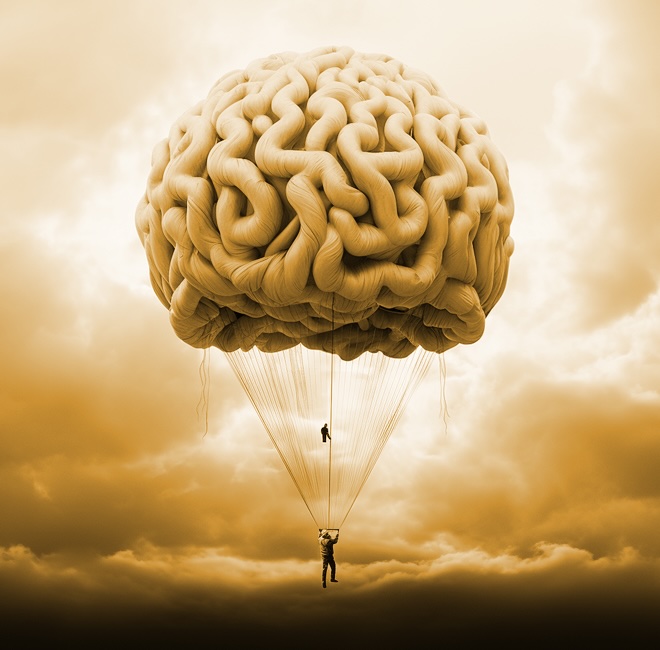We are slowly but surely moving towards a world without human work. What will remain, no doubt, are the manual trades that most former white-collar workers will be reluctant to do. Wealth will still be there, as global productivity increases. However, the world will, so to speak, be divided in two: those who own capital (in reduced numbers) and those who live on state handouts, witnessing the disappearance of the middle classes before our very eyes.
The End Of The Middle Classes Or A Return To Feudalism
The middle class is a relatively recent concept. It can probably be dated back to the beginning of the Renaissance, when bourgeois classes emerged in the cities of northern Italy. Previously, there were only three classes: the clergy, the nobility (representing a tiny proportion of the population) and the plebs (a somewhat anachronistic Roman term for anyone excluded from the patrician class), made up of artisans, peasants (also known as vilains or manants) and serfs (i.e. people who were not free to leave their lord’s fiefdom and were subject to heavy taxes, mainly paid through forced labor). Society was rigid and impermeable. Certainly, some commoner professions, such as blacksmiths, were closely associated with the nobility, and enjoyed a certain respect because their function directly served the ruling class. However, class barriers were virtually impenetrable, except in the early Middle Ages, when feudalism was established. A society without a middle class would be tantamount to a return to the Middle Ages, lorded over by the tech giants, and the new priests would be the bosses of these groups or the influential writers who shape both the vision of the future and the narratives of today.
What Does It Mean To Be A Serf Or A Manant In The 21St Century?
If the first nobility were warriors before becoming “roble” nobility, i.e. clerics assigned to administrative tasks and frequenting the king’s court, what will become of the new nobility? The new lords will look and feel like geeks; their swords won’t be made of iron or hardened steel, but of plastic, since they’ll be computer keyboards and mice. They will control the gold of the 21st century, namely data, whereas before, lords controlled land, which was the gold of their time. Being a peasant or serf in the 21st century means that our data, which we produce, doesn’t belong to us, just as the villains of yesteryear didn’t own their land and could suffer the wrath of their lord, who could humiliate them or even take their lives. We’re more fortunate, as we’ll probably escape the keyboard or mouse strokes of Mark Zuckerberg or Elon Musk.
How Did The Middle Classes Emerge?
The bourgeoisie was born of the emergence of products more expensive than land. If you master the trade routes and therefore the products that pass through them, you’ll become richer than your lord. Merchants in wealthy Italian cities had their own private armies, and financed military expeditions (e.g. certain crusades), giving rise to merchant societies in which the boundary between bourgeois and noble was blurred.
How Did The Middle Classes Disappear?
The Industrial Revolution captured the labor of millions of people on a massive scale, enriching the major groups that were key to industrialization – the steel industry (e.g. Carnegie) and others. This capture of wealth split society in two: the workers (metropolitan and colonial) and the capitalists. It’s easy to see why Marxist discourse had a resounding echo around the world at this time. It wasn’t until two world wars and successive decolonizations that the status of workers improved and the middle classes re-emerged in the early ’50s. Today, we are entering a new cycle of middle-class disappearance, driven by a new innovation that is just as (if not more) resounding than the steam engine, namely artificial intelligence and all that it induces (machine learning, Big Data, etc.). If a third world war is not desirable to solve this problem, how can it nonetheless be resolved?
The Proletarian Revolution Is A Quest For Status
Nobody wants to be a serf, and even less so in the 20th century. If communist revolutions worked, it was because they promised to annul class society for all those at the bottom of the social ladder. The problem was, when the power of the “bourgeois” was overthrown, nobody liked being a pale copy of their neighbor. Nobody wanted to be undifferentiated, nobody wanted to be a lambda member of society. In other words, everyone aspires to status, even more so in communist societies.
Tomorrow’s Society Will Crave Status
As money becomes scarce for the plebs or insignificant compared to the powerful, there will be a race for status. Human societies since the Paleolithic have always been structured around status. Status is earned by being useful to society. How can you be useful in a society that strives to make every human being useless?
The Quest For Status Will Give Power Back To Families
If the modernization of the economy via the industrialization process has led to a loosening of family ties, we can strangely hope that AI will produce the opposite effect. In the Middle Ages, a serf’s only wealth was his family, even if his children were legally the property of his lord. If humanity comes to serve no purpose, the family will regain its full meaning, even if the tech giants distract them from our parental authority. Being a parent and having a family is the wealth of the poor, let alone living wealth, as a Chinese proverb puts it. The family, and the place and role we occupy within it, will undoubtedly be the levers of our quest for status in the society of the future.
Will The State Be The New Church, Or Will It Be The Tech Giant?
The welfare state is the heir to the Church, whose role was, among other things, to help the poor by caring for them and feeding them, although it was also an oppressive force for them (taxes, etc.). The modern state will continue to play this role through other forms of handouts (universal income, universal healthcare, etc.). However, what position will states have when digital companies are more powerful than they are? Will we be witnessing a new age of states directly administered or run by corporations? There are historical precedents for this (the Dutch East India Company, the English East India Company, etc.).










